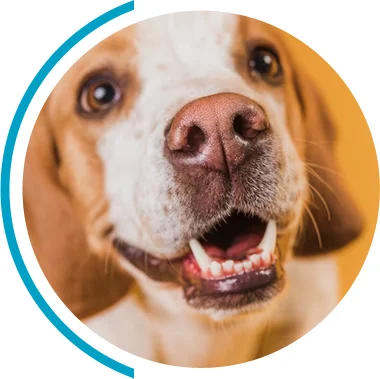Dog anxiety is increasingly being recognized as a significant issue that affects pets and their owners alike. In Irvine, various treatment options are available for anxious dogs. Understanding the nature of canine anxiety, its causes, symptoms, and the treatment options can help pet owners make informed decisions to enhance their dog’s well-being.
Canine anxiety can manifest in various forms, leading to behavioral issues and affecting a dog’s quality of life. Understanding the underlying factors and recognizing the symptoms is crucial for seeking appropriate treatment. Just like humans, dogs experience a range of emotions, and anxiety can significantly impact their behavior and overall well-being. It is essential for dog owners to be proactive in identifying signs of anxiety and to create a supportive environment that fosters a sense of security for their furry companions.
Several factors can contribute to anxiety in dogs, including genetic predisposition, traumatic experiences, and lack of socialization. Common causes include:
Understanding these causes is the first step towards alleviating canine anxiety, enabling owners to create a nurturing environment and appropriate treatment plan. Additionally, early socialization and positive reinforcement training can help mitigate some of these anxiety triggers, fostering a more confident and well-adjusted dog.
Recognizing the symptoms of anxiety in dogs is essential for timely intervention. Common signs include:
Being attentive to these signs can help owners take the necessary steps to address their dog’s anxiety effectively. Early recognition can lead to interventions such as behavioral therapy, medication, or environmental modifications that can greatly improve a dog’s quality of life. Moreover, engaging in regular exercise and mental stimulation can also serve as effective outlets for anxiety, helping dogs to channel their energy positively and reduce stress levels.
Treating anxiety in dogs is essential for their overall health and well-being. Left unchecked, anxiety can lead to a range of problems that impact both the dog and its owner.
If anxiety is not treated, it can lead to severe behavioral issues. Dogs may develop secondary conditions, such as aggression or compulsive disorders. Long-term stress can also have physical health consequences, such as weakened immune systems, gastrointestinal issues, and other stress-related ailments.
Anxiety can significantly diminish a dog’s quality of life. An anxious dog may avoid social interactions, displays of affection, or playtime, leading to a lonely and depressed existence. The emotional well-being of a dog is fundamentally tied to its ability to engage with its environment and human family members.
In Irvine, pet owners have access to various treatment modalities for dog anxiety. Each approach can be tailored to meet the specific needs of individual dogs.
Behavioral therapy is one of the most effective treatments for dog anxiety. Approaches include desensitization, counter-conditioning, and positive reinforcement training. A certified dog trainer or a veterinary behaviorist can help implement these techniques, making gradual exposure to anxiety-inducing stimuli a part of a structured program.
In some cases, medication may be necessary to manage anxiety effectively. Various psychotropic medications can help calm an anxious dog, allowing it to engage more positively in behavioral therapy. It is crucial to consult with a veterinarian to determine the appropriate dosage and medication that suits the dog’s individual needs.
Selecting the right treatment option requires careful consideration of various factors. Understanding the dog’s specific needs is key to effective treatment.
When choosing an anxiety treatment, owners should consider the following factors:
Consulting a veterinary behaviorist can provide valuable insights into the most appropriate treatment for a dog’s anxiety. They can perform a thorough assessment and develop a customized treatment plan that addresses the unique needs of the dog and the owner.
Dog owners play a critical role in managing their pet’s anxiety. Their understanding and involvement can greatly influence the success of treatment.
Establishing a safe and nurturing environment is vital for an anxious dog. This can include providing a quiet space for the dog to retreat to, using calming aids like pheromone diffusers, and maintaining a consistent routine.
Implementing specific training techniques can promote confidence and reduce anxiety in dogs. Practices such as basic obedience training, socialization exercises, and engaging in interactive play can help alleviate anxiety symptoms. Positive reinforcement techniques encourage a positive association with previously anxiety-inducing situations.
In summary, understanding and treating canine anxiety is a multifaceted process that requires the concerted effort of both the owners and professional caregivers. By utilizing the resources available in Irvine, pet owners can provide their dogs with the support they need to live a happy and fulfilling life.
If you’re feeling overwhelmed by your dog’s anxiety and are seeking compassionate, expert guidance, look no further than The Grounded Hound Canine Coaching. As a Certified Dog Trainer with specialized certifications in Separation Anxiety, I bring a wealth of knowledge and a heartfelt approach to helping you and your furry friend. With a foundation in Patience, Kindness, and Consistency, we’ll work together to create a happier, more peaceful life for your dog. Don’t let anxiety stand in the way of your dog’s well-being. Contact Us Today and take the first step towards a calmer, more confident companion.

